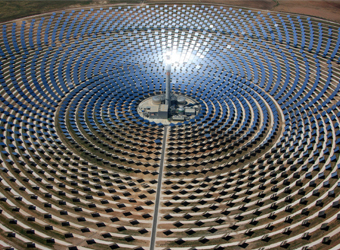Egyptian renewable energy developer Infinity Solar Energy and international solar developer IB Vogt, GmbH, will each receive an $87 billion syndicated loan provided by the European Bank for Reconstruction and Development (EBRD), the Green Climate Fund (GCF), and the Dutch Development Bank (FMO), according to an EBRD statement issued on Monday.
The funds will be allocated for the construction and operation of two solar photovoltaic power plants planned for Upper Egypt’s Benban village.
Upon completion, the facilities will comprise the largest solar installation in the world, with a planned total capacity of 1.8 GW.
Egypt has approved feed-in tariffs for renewable energy production, allowing the government to guarantee a certain price for energy produced in order to encourage investment in the renewable energy sector.
The bank provided a breakdown of the amount allocated, which includes EBRD Loans of $58 million for each of the two projects, of which $44 million will be from the bank’s own account and $14 million from the Green Climate Fund.
The FMO will provide the remaining $29 million loans.
The Egyptian solar energy project falls under the EBRD’s $500 million framework for renewable energy in the country, which was adopted earlier this year.
Egypt has been receiving funding from the EBRD since 2012, with the bank investing a total of invested €2.7 billion in 51 projects in the country in various fields and sectors.
“The expansion of renewable is crucial not only for the environment, but also for the wider economy. It will create jobs, increase energy security and reduce the burden on the economy. The introduction of a regulatory framework that private investors can rely on will ensure that all this happens at sustainable cost and affordable prices,” said the head of Power and Energy Utilities for the EBRD, Harry Boyd-Carpenter.
From his side, Infinity Solar CEO Mohamed Mansour expressed delight at collaborating with EBRD and its partners, describing the cooperation as a “big step in achieving Egypt’s capacity goals for the market.”
Egypt has been working to upgrade its power plant capacity and renewable energy projects in order to meet rising power demand and resources, and aims to transition 22 percent of the country’s energy consumption to renewable sources by 2020.
Source: Ahram online


